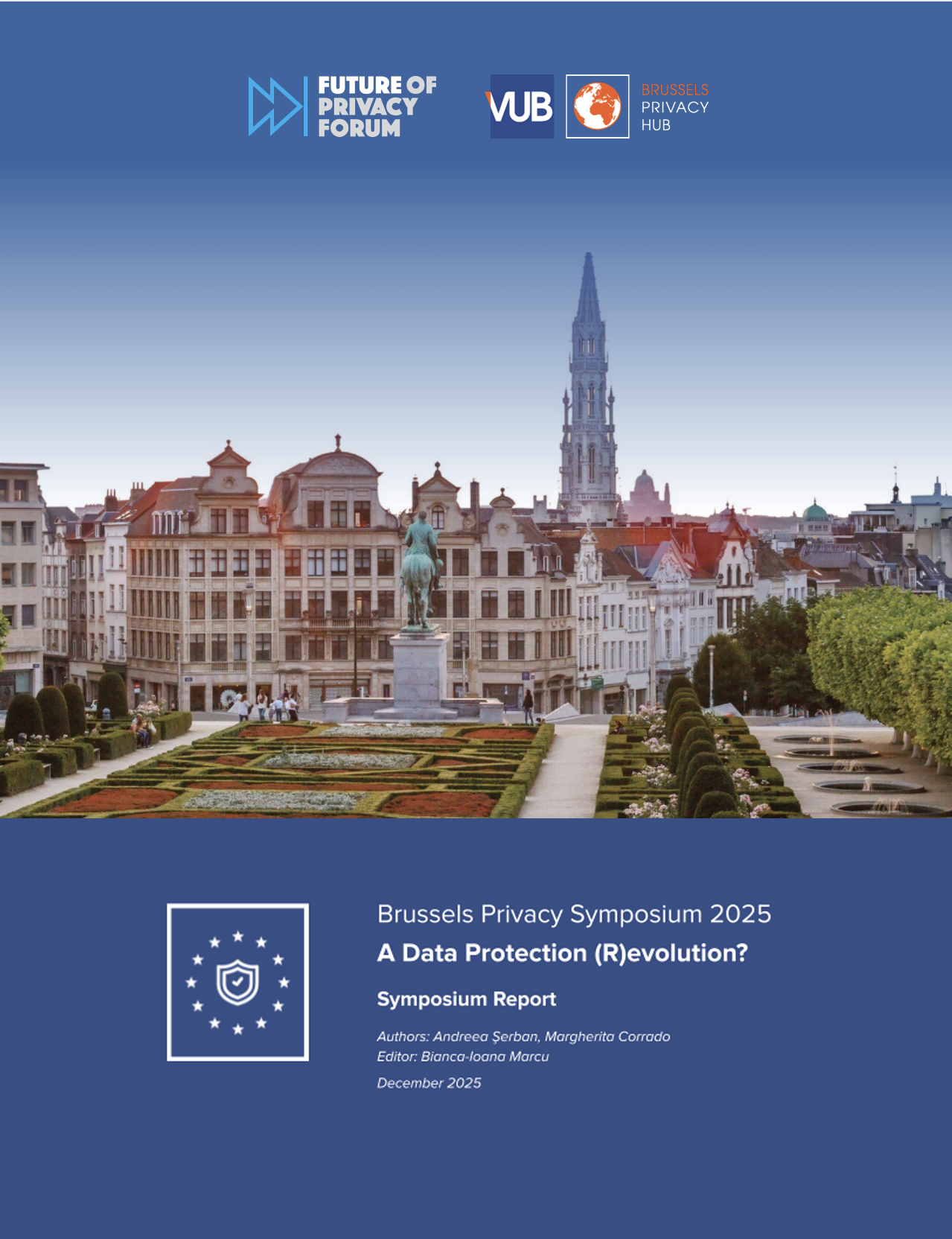
2026 FPF Sponsorship Prospectus
SPONSORSHIP PROSPECTUS 2026 1 FPF SPONSORSHIP PROSPECTUS 2026 The Future of Privacy Forum (FPF) is a global non-profit organization that brings together industry, academics, civil society, policymakers, and other stakeholders to explore the challenges posed by technological innovation and develop privacy protections, ethical norms, and workable business practices. We provide a global platform for senior […]

Matthew Reisman

Brussels Privacy Symposium 2025 Report – A Data Protection (R)evolution?
Co-Author: Margherita Corrado Editor: Bianca Ioana-Marcu This year’s Brussels Privacy Symposium, held on 14 October 2025, brought together stakeholders from across Europe and beyond for a conversation about the GDPR’s role within the EU’s evolving digital framework. Co-organized jointly by the Future of Privacy Forum and the Brussels Privacy Hub of the Vrije Universiteit Brussel, […]

Brussels Privacy Symposium 2025 Report
T he Fu tu re of Priv a cy Fo ru m I n Euro pe, th e Fu tu re of Priv a cy Fo ru m (F P F) is an in d ep end ent vo ic e , main ta in in g ne utr a lit y i n an […]

FPF Inaugural EU Privacy Leadership Forum
The FPF EU Privacy Leadership Forum is a new, invitation-only membership offering for senior leaders in Europe. This flagship convening strengthens FPF’s role as a neutral, multi-stakeholder platform by providing our member community with a high-trust space to engage on emerging challenges in privacy, data protection, and AI governance. As part of FPF’s growing suite […]

FPF releases Issue Brief on Brazil’s Digital ECA: new paradigm of safety & privacy for minors online
This Issue Brief analyzes Brazil’s recently enacted children’s online safety law, summarizing its key provisions and how they interact with existing principles and obligations under the country’s general data protection law (LGPD). It provides insight into an emerging paradigm of protection for minors in online environments through an innovative and strengthened institutional framework, focusing on […]

FPF AARNET Youth Privacy in Australia
YOUTH PR I VACY IN AUSTRALIA Insights from National Policy Dialogues NOVEMBER 2025 Bailey Sanchez Deputy Director, U.S. Legislation, Future of Privacy Forum Jordan Wrigley Data and Policy Analyst for Health & Wellness, Future of Privacy Forum AUTHORS All FPF materials that are released publicly are free to share and adapt with appropriate attribution. Learn […]

What’s New in COPPA 2.0? A Summary of the Proposed Changes
On November 25th, U.S. House Energy and Commerce introduced a comprehensive bill package to advance child online privacy and safety, which included its own version of the Children and Teens’ Online Privacy Protection Act (“COPPA 2.0”) to modernize COPPA. First enacted in 1998, the Children’s Online Privacy Protection Act (COPPA) is a federal law that provides important online protections […]

Project Researcher, Privacy and AI Governance
Location: Singapore or Tokyo Reports to: Managing Director, APAC Compensation: Stipend of US $2,500 per month About Us: The Future of Privacy Forum (FPF) is a global non-profit organization that serves as a catalyst for privacy leadership and scholarship, advancing principled data practices in support of emerging technologies. FPF is an organization at the forefront of […]

Policy Associate/Policy Manager
General Overview The Future of Privacy Forum (FPF) is seeking a Policy Associate / Policy Manager to join our Asia-Pacific (APAC) team, based in Singapore, depending on experience. FPF is a global non-profit organization that serves as a catalyst for privacy leadership and scholarship, advancing principled data practices in support of emerging technologies. Through our […]
